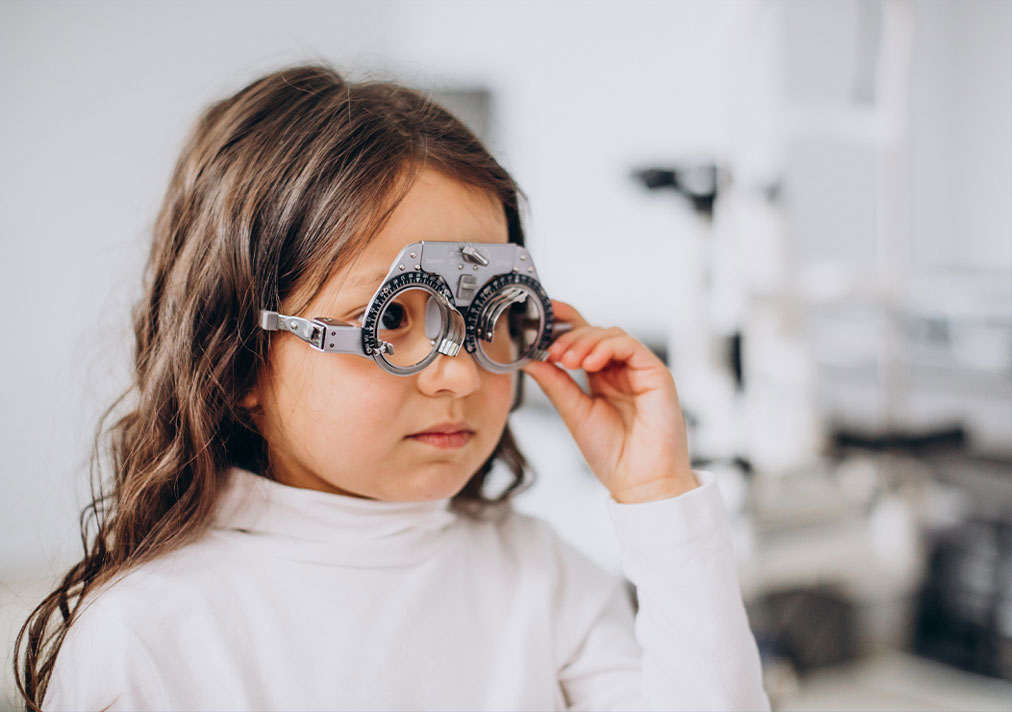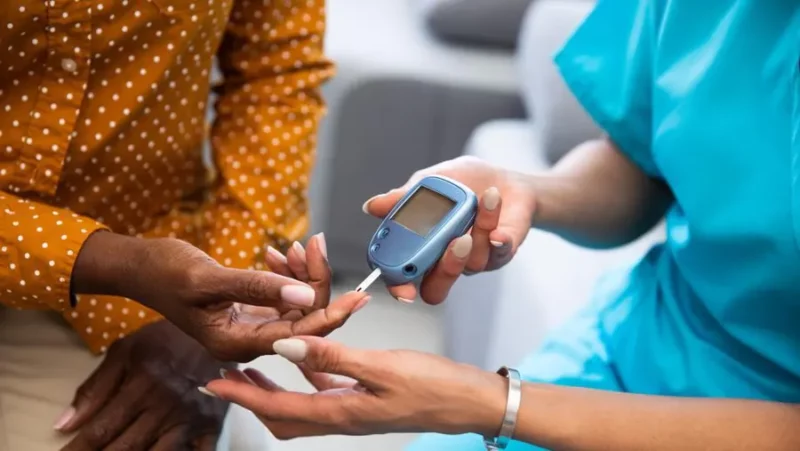Diabetes is a significant problem in today’s world, not only in India but also globally. As of 2023, there are 101 million diabetic patients in India and 537 million worldwide, and these numbers are continuously increasing. It is important to be aware that diabetes can have a negative impact on our eyes, potentially leading to vision loss.
Indeed, diabetes comes with various adverse effects, and its effect on the eyes is a particularly serious concern, with cataracts being one of the issues. People with diabetes are at a higher risk of developing cataracts that can impair vision compared to those without diabetes. Before we explore the connection between diabetes and cataracts, let’s first understand what cataracts and diabetes are.
Diabetes is a chronic disease that occurs when your blood glucose (blood sugar) is too high. Glucose is your body’s main source of energy. Your body can make glucose, but glucose also comes from the food you eat. Insulin is a hormone released by the pancreas that helps this glucose to enter body cells for energy. So if you have diabetes, your body doesn’t make enough insulin or any insulin or doesn’t use enough insulin, which leads to more glucose in the blood rather than reaching cells for energy.
A cataract is an eye condition where the natural lens becomes cloudy, causing blurry vision and decreased visual clarity. It often occurs due to aging but can result from injuries, medications, or medical conditions.
First, let’s understand how diabetes leads to vision loss or Cataracts!
It all revolves around glucose, the simple sugar that fuels the body’s cells. The eye’s lens relies on glucose from the aqueous humor, the fluid that fills the front part of the eye, for its nourishment. In diabetes, when glucose levels aren’t well-controlled, they rise in both the aqueous humor and the lens. The increased glucose in the lens causes swelling, affecting vision clarity. Additionally, an enzyme in the lens transforms glucose into sorbitol. Accumulation of sorbitol in the lens can disrupt cells and natural proteins, leading to reduced clarity and increased opacity. This process eventually leads to cataract formation, causing blurriness, yellowish or faded vision, and heightened glare.
Also Read: how to prevent eye damage from diabetes?, how diabetes affects eyesight?
But how do you know that you have Cataracts?
Apart from blurry or cloudy vision, cataracts can cause various other symptoms.
- Increasing difficulty with vision at night.
- Sensitivity to light and glare.
- Need for brighter light for reading and other activities.
- Seeing “halos” around lights.
- Frequent changes in eyeglasses or contact lens prescription.
- Fading or yellowing of colors.
- Double vision in a single eye.
If you experience any of these eye changes, especially if you have diabetes, Seeking immediate medical attention is crucial. Timely medical attention can help identify and address potential cataracts or other eye diseases such as glaucoma or diabetic retinopathy, ensuring better eye health and vision.
How to Prevent Cataracts with Diabetes: A Pointer Guide
Maintain a Healthy Blood Sugar Level:
- Regularly monitor your blood sugar levels.
- Follow your doctor’s instructions on taking diabetes medications.
- If your blood sugar remains high despite medication, consult a healthcare professional for possible adjustments.
Engage in Regular Exercise to Control Blood Sugar:
- Incorporate physical activities into your routine to help manage blood sugar levels.
- Suitable exercises include brisk walking, biking, hiking, dancing, swimming, and engaging in competitive sports.
Get Comprehensive Eye Examinations:
- Schedule eye check-ups with an ophthalmologist at least once a year.
- Regular eye examinations can detect issues early on and allow for timely treatment.
Maintain Healthy Blood Pressure and Cholesterol Levels:
- Keep your blood pressure and cholesterol levels in check to promote overall eye health.
Quit Smoking if You Use Tobacco:
- Eliminate tobacco use, as it can have adverse effects on your eyes and overall health.
If you are a Diabetic patient experiencing Cataract symptoms – Eye-Q Got You Covered!
Your vision is vital. If you notice changes, don’t wait for your annual exam.
Also, if you are diabetic and have these symptoms of cataract, schedule your appointment with Eye-Q Super-Speciality Eye Hospitals. At Eye-Q, our experienced team prioritizes your vision health. Early detection prevents progression. Trust us to guide you toward the best solution for a clearer vision and a brighter tomorrow!




